Rage and Meditation: Celebrating Toni Cade Bambara’s 75th Birthday
By Aishah Shahidah Simmons on November 19, 2014Editors’ Note: Since this is a special forum celebrating the life, work, and legacy of Toni Cade Bambara, one of our ancestor heroines, TFW made the editorial decision to republish Aishah Shahidah Simmons’ “Rage and Meditation: Celebrating Toni Cade Bambara’s 75th Birthday,” as Simmons was a student and young sister-friend of the celebrant. This slightly revised piece was originally published during a one-day mini-forum on March 25, 2014, which would have been Toni Cade Bambara’s 75th birthday.
Word libation in honor of Toni Cade Bambara’s genius:
The task of the artist is determined always by the status and process and agenda of the community that it already serves. If you’re an artist who identifies with, who springs from, who is serviced by or drafted by a bourgeois capitalist class then that’s the kind of writing you do. Then your job is to maintain status quo, to celebrate exploitation or to guise it in some lovely, romantic way. That’s your job…
As a cultural worker who belongs to an oppressed people my job is to make revolution irresistible. One of the ways I attempt to do that is by celebrating those victories within the [B]lack community. And I think the mere fact that we’re still breathing is a cause for celebration. Also, my job is to critique the reactionary behavior within the community and to keep certain kinds of calls out there: the children, our responsibility of children, our responsibility to maintain some kind of continuity from the past. But I think for any artist your job is determined by the community you’re identifying with.
But in this country (US) we’re not encouraged and equipped at any particular time to view things that way. And so the artwork or the art practice that sells a capitalist ideology is considered art and anything that deviates from that is considered political propagandist, polemical or didactic, strange, weird, subversive, or ugly.
—Toni Cade Bambara interviewed by Kay Bonetti, 19821
There aren’t many days in any given month when I don’t reflect upon Black feminist writer, organizer, and activist Toni Cade Bambara’s brilliance. A cultural worker extraordinaire, Toni was a mapmaker and trailblazer upon whose shoulders so many of us literally and metaphorically sit and stand.
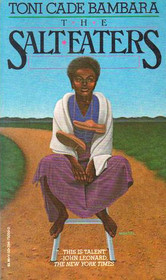 For those of us who have been directly and indirectly impacted by Toni Cade Bambara, March 25, 2014 was a very special and sacred day because it was her 75th birthday anniversary. The original plan was to curate, edit and publish an online 75th birthday forum in honor of Bambara’s life and legacy in March.
For those of us who have been directly and indirectly impacted by Toni Cade Bambara, March 25, 2014 was a very special and sacred day because it was her 75th birthday anniversary. The original plan was to curate, edit and publish an online 75th birthday forum in honor of Bambara’s life and legacy in March.
The timeless question from Bambara’s sacred text The Salt Eaters, asks:
Are you sure, sweetheart, that you want to be well?… Just so’s you’re sure, sweetheart, and ready to be healed, cause wholeness is no trifling matter. A lot of weight when you’re well.
The answer:
We want to be well, Toni.
#BambaraOnTFW Post the end of The Feminist Wire’s two-week Audre Lorde forum on March 1, 2014, it was emotionally and physically impossible to begin working on launching a Bambara forum without causing harm in the form of intense stress and strain. Instead, TFW hosted a small one-day celebration in honor of Toni with contributions by Gloria I. Joseph, Cheryl Clarke, Alexis Pauline Gumbs, Heidi R. Lewis, and Samiya A. Bashir. Heidi and I never lost sight of our expressed commitment to pay homage to Toni Cade Bambara in a major forum. We circled back in the summer to co-curate, co-edit, and publish the envisioned Toni Cade Bambara online forum in the late fall.
Sista is a verb and a noun.
—Toni Cade Bambara
This is a celebration of a living legacy. I am not an advocate of organized religions. Under the leadership of men and male identified women, many organized religions have HIStorically maligned and castigated women who,
- spoke the truth about violence perpetuated against them at the hands of men and women;
- dared to be financially independent of the men in their life;
- were not sexually monogamous;
- loved women romantically and/or sexually;
- were sex workers—prostitutes and strippers;
- supported, fought and even died for reproductive justice and other forms of women’s reproductive justice and overall liberation…
In spite of the aforementioned examples of blatant and often grotesque, sexism, misogyny, classism, heterosexism, and homophobia practiced in many (not all) organized religions, there is something powerful that must be celebrated about the reality of sista-hood and community that women created in mosques, temples, shrines, churches, beauty parlors, kitchen tables, laundromats, and other sanctuaries. It is in that freedom fighter warrior sista-woman tradition that I speak Toni Cade Bambara’s name.
Free to be anywhere at all in the universe.
—The Salt Eaters
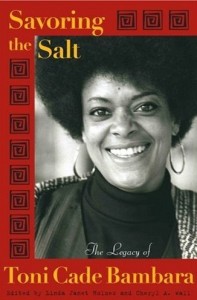 Nineteen years later and it’s still extremely hard to fully grasp that Toni Cade Bambara became an ancestor on December 9, 1995 at 56 years of age. Cancer claimed her body but Toni’s Spirit is present in the lives of all those she touched in North America and throughout the world. Toni’s legacy lives through her daughter Karma Bene Bambara Smith, Karma’s children; and her incredible body of work.
Nineteen years later and it’s still extremely hard to fully grasp that Toni Cade Bambara became an ancestor on December 9, 1995 at 56 years of age. Cancer claimed her body but Toni’s Spirit is present in the lives of all those she touched in North America and throughout the world. Toni’s legacy lives through her daughter Karma Bene Bambara Smith, Karma’s children; and her incredible body of work.
An award-winning author, her written work includes the anthologies The Black Woman (1970) and Tale and Stories for Black Folks (1971); the short story collections, Gorilla, My Love (1972) and The Seabirds Are Still Alive (1977); and one novel, The Salt Eaters (1980), which won the 1981 American Book Award from the Before Columbus Foundation. Nobel Laureate and Pulitzer Prize winning author Toni Morrison published two of her dear friend Bambara’s work posthumously Deep Sightings and Rescue Missions (1995), a collection of fiction, essays, and conversations; and, 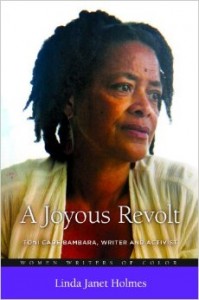 Those Bones Are Not My Child (1999), a novel about the Atlanta Child Murders. Linda Janet Holmes and Cheryl A. Wall co-edited Savoring the Salt: The Legacy of Toni Cade Bambara (2007), a collection of writings by artists, activists, and scholars who reflect upon Bambara’s influence on American culture. Thabiti Lewis edited Conversations with Toni Cade Bambara (2012), a collection of interviews with Bambara from the late 70s through the early 90s. In 2013, Bambara was inducted into the Georgia Writers Hall of Fame. Linda Janet Holmes‘ highly anticipated biography A Joyous Revolt: Toni Cade Bambara, Writer and Activist was published in May 2014.
Those Bones Are Not My Child (1999), a novel about the Atlanta Child Murders. Linda Janet Holmes and Cheryl A. Wall co-edited Savoring the Salt: The Legacy of Toni Cade Bambara (2007), a collection of writings by artists, activists, and scholars who reflect upon Bambara’s influence on American culture. Thabiti Lewis edited Conversations with Toni Cade Bambara (2012), a collection of interviews with Bambara from the late 70s through the early 90s. In 2013, Bambara was inducted into the Georgia Writers Hall of Fame. Linda Janet Holmes‘ highly anticipated biography A Joyous Revolt: Toni Cade Bambara, Writer and Activist was published in May 2014.
A noted documentary filmmaker and screenwriter, Bambara’s film work includes the documentaries The Bombing of Osage Avenue and W.E.B. DuBois: A Biography in Four Voices (both of which were produced and directed by Louis Massiah); Seven Songs of Malcom X (directed by John Akomfrah); and Anna Russell Jones: Praisesong for a Pioneering Spirit (directed by Nadine Patterson). Toni taught, mentored, consulted, worked and/or partnered with many emerging and veteran documentary and narrative filmmakers. She was also a film critic who had a razor sharp Black feminist intersectional analysis about cinema.
The Bambara Personal Touch
While there are many Black women I model myself after, I lift up both Audre Lorde and Toni Cade Bambara almost every single day. Today, however, I will briefly focus on TCB as many refer to her affectionately. Throughout the short tenure of Toni’s life, she shifted paradigms and placed the margins at the center in U.S. society and beyond. Personally, I learned from my teacher and mentor of five years that the role of the artist/cultural worker is to make revolutionary change irresistible.
Toni Cade Bambara walked the talk. She maintained a hardcore sense of integrity on her journey called life, which didn’t allow her to rest on her hard earned and well-deserved laurels. She did not allow her fame and notoriety separate herself from the community from which, as she so eloquently said, “’named’ her Daughter, Mother, Sister, Friend, Confidante, Teacher, Comrade.” I vividly remember Toni sharing stories about going to events where there people would stand in long lines to gain entrance and how she consistently fought the urge to inquire if she could jump ahead of the line just because she was “Toni Cade Bambara, a celebrated published writer.” She was always explicitly clear with me that she was not “special” because she was a published author. She said,
When I was a social worker I didn’t receive special treatment. Why should I receive special treatment based upon the fact that I wrote books?
She frequently told me (and so many others) that writing was one of the ways that she did her organizing and activist work in the world. While very important in the movements for radical social change, Toni was clear that writing didn’t take precedence over other social change mediums.
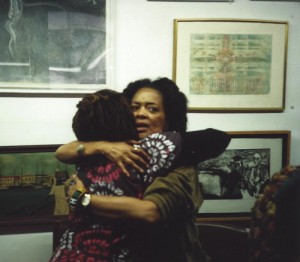
Aishah Shahidah Simmons and Toni Cade Bambara at the Hatch-Billops Collection
photograph: ©Michael Simmons, 1994
Toni taught me to respect the intellectual genius that permeates working class communities of color. This genius is often not credentialed in the Academic Industrial Complex and as a result, it is grossly undervalued by everyone. Simultaneously, Toni reminded me that there were many Black people who had advanced academic credentials in the early part of the twentieth century. And yet, they still had extremely difficult time securing jobs that were commensurate with their education because of the grotesques realities of racism and sexism in America. Tragically while much has changed, many things remain the same. It is precisely because of Toni that I understand the importance of not defining people in terms of the education one had or the paid work that one did. Instead, her spoken and written words taught me to look at what kind of partner someone was, what kind of parent someone was, what kind of friend someone was, what kind of organizer someone was, and what type of commitment a person had to struggle for the rights of oppressed and marginalized people. When I factor in the impact of racism, sexism, and classism on millions of Diasporic African, Indigenous, Arab, Pacific Islander, Latin@s, and Asian people in America, her thinking and living practice were not only profound; but light years ahead of so many during her lifetime and even today in 2014.
Toni always cautioned me to be leery of people that I did not know and/or people who were in positions of power who wanted to “pick my brain.” Her position was that “brain picking” was free consulting. While she was not opposed to the idea of free consulting on a “case by case” basis, she thought it was very important that people name the services that they were soliciting and refrain from using cute terms to mask the requests. Toni was adamant that I learn how to develop a “brain picking” pay scale based on the amount of time and level of work each request would require from me.
I credit Toni’s living example with my in-depth understanding that creating cultural work whose goal is to bring radically progressive ideas, images, perspectives, and voices from the margins to the center is an important form of revolutionary social change and community activism. She was the first person that I met who, in 1990, did a roll call of 84 Diasporic African women film and videomakers to counteract the fabricated racist and sexist myth that Black women around the world weren’t making films. She was a staunch supporter of the Black American Independent Cinema Movement. She always differentiated between “Hollyweird” (aka Hollywood) and Independent Cinema. Toni wrote:
Can the planet be rescued from the psychopaths? The persistent concern of engaged artists, of cultural workers, in this country and certainly within my community, is, What role, can, should, or must the film practitioner, for example, play in producing a desirable vision of the future? And the challenge that the cultural worker faces, myself for example, as a writer and as a media activist, is that the tools of my trade are colonized. The creative imagination has been colonized. The global screen has been colonized. And the audience–readers and viewers–is in bondage to an industry. It has the money, the will, the muscle, and the propaganda machine oiled up to keep us all locked up in a delusional system–as to even what America is. -“Language and the Writer,” in Deep Sightings and Rescue Missions[2]
Toni’s physical existence, body of work, and solicited personal counsel during the first five-years of my twenties transformed my life in ways that are still unfolding two decades later. When I was a very young woman who was struggling with coming out as a lesbian, she never told me that I was going through a phase nor did she tell me that it was my “private or personal” business. She encouraged me to be true to my spirit and myself regardless of what anyone else thought, said, and or wanted. Additionally, she lovingly, compassionately and fiercely pushed me to move beyond my comfort zone with creating work. I am a cultural worker because of Toni Cade Bambara. I strive to create work in her Black woman centered, truth telling tradition. Under her guidance, I produced, wrote, and directed my first short video Silence…Broken, which is based upon Audre Lorde’s essay “Transformation of Silence into Language and Action.” Silence…Broken was my visual Black (feminist) lesbian coming out (wo)manifesto.
Rage. Meditation. Action. Healing. Ase’.
-A State of Rage
Toni was one of the most important catalysts for the creation of my biggest project to date, NO! The Rape Documentary, which explores the international atrocities of rape and sexual violence through the experiences of African-Americans. In one of my last of many scriptwriting workshops taken or proctored over a period of five years with Toni at Scribe, the vision for what evolved into NO! The Rape Documentary was fully conceived. In Toni’s workshop, I expressed tremendous frustration and difficulty with transforming my thoughts and my feelings in my head about NO! to images on paper. In class Toni challenged me to go home and “free style” my feelings about NO! Sensing that I may come to class empty handed or worse, not come to class at all, she followed up with a big sista “take no prisoners” voice mail message telling me I better come to class and I better not come empty handed. Her message was my initiation by fire and it was grounded in love. I am forever grateful. That evening I conceived and gave birth to my choreopoem A State of Rage (ASoR) in my apartment in December 1994. The choreopoem moves from rage to meditation to action and healing. In response to ASoR, Toni wrote a long letter with comments that read in part:
…We are taught(women especially) that anger and rage are unhealthy that we need to muffle it; medicate it, deny it, flee it. You (Aishah) clearly don’t think so. Good. Apathy, despair, and amnesia would be the unhealthy responses in the project’s “universe,” and anger the most use-full.
We don’t usually associate rage (scary, noisy, frightening), with meditation (contemplation, solitude, tranquil) thus you have an opportunity to harness seeming contraires to produce surprises…
Toni transitioned into the Spirit world within the next year (Free to be anywhere at all in the universe). For eleven years A State of Rage served as my literal compass for NO! Whenever I went in the wrong direction, the parts or even the entirety of ASoR would get me back on track. Equally as important and definitely unbeknownst to me throughout the process, ASoR was an unwavering road map for my own incest and rape survivor healing journey.
Rage. Meditation. Action. Healing. Ase’.
In the process of making NO!, I saved parts of myself. Yes, Toni, I am sure I want to be well. It is definitely not a trifling matter and it is a whole lot of weight.
The revolution begins with the self, in the self.
—Toni Cade Bambara
Inspired by and dedicated to Toni, For Women of Rage & Reason is both a stand alone short video and it’s the closing sequence of NO!
Thank you, Toni, for all of the gifts that keep on giving.
Happy Birthday with Love in All Ways!!!!
In the Hands of the Ancestors. Ase’.
Aishah Shahidah Simmons is a Black feminist lesbian documentary filmmaker, cultural worker, and international lecturer. An incest and rape survivor, she is the Creator of the Ford Foundation-funded internationally acclaimed and award-winning feature length film NO! The Rape Documentary. Presently, she is an adjunct professor in the Women’s and LGBT Studies Program at Temple University. Previously, she was an O’Brien Distinguished Visiting Professor in the Feminist, Gender and Sexuality Studies Department at Scripps College and a Visiting Lecturer in the Department of Cinema and Media Studies at the University of Chicago. Committed to archiving, documenting, and telling Black women’s herstories and contemporary realities, Aishah was the Curator and Lead Editor of The Feminist Wire‘s (TFW), “Global Forum on Audre Lorde.” She is also the Co-Curator and Co-Editor, with Heidi R. Lewis, of TFW’s “Toni Cade Bambara 75th Birthday Anniversary Forum.” Aishah is the author of several essays including the Foreword to the recently released Dear Sister: Letters to Survivors of Sexual Violence. She has screened her work, guest lectured, and facilitated workshops and dialogues about ending all forms of sexual violence; queer identity from an AfroLez®femcentric perspective; the grassroots process of making social change documentaries; and non-Christocentric spirituality at colleges and universities, high schools, conferences, international film festivals, rape crisis centers, battered women shelters, community centers, juvenile correctional facilities, and government sponsored events across the United States and Canada, throughout Italy, in South Africa, France, England, Croatia, Hungary, The Netherlands, Mexico, Kenya, Malaysia, and India. You can follow Aishah on twitter at @AfroLez and connect via her public Facebook page. For more information, please visit: http://NOtheRapeDocumentary.org
You may also like...
9 Comments
All Content ©2016 The Feminist Wire All Rights Reserved

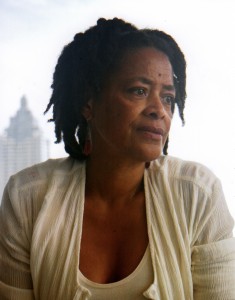
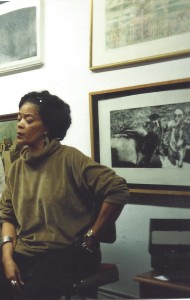





Pingback: A State of Rage (for Toni Cade Bambara) - The Feminist Wire | The Feminist Wire
Pingback: a spell to save your life - The Feminist Wire | The Feminist Wire
Pingback: Listen You Can Hear the Mothers Crying in the Universe: A Black Feminist Poet’s Requiem for Our Black Warrior Toni - The Feminist Wire | The Feminist Wire
Pingback: One Thing: Toni Cade Bambara in the Speaking Everyday - The Feminist Wire | The Feminist Wire
Pingback: Permission - The Feminist Wire | The Feminist Wire
Pingback: Image Weavers: In Honor of the Spirit of Toni Cade Bambara - The Feminist Wire | The Feminist Wire
Pingback: On Toni Cade Bambara and the Darren Wilson Jury Decision - The Feminist Wire | The Feminist Wire
Pingback: Toni Cade Bambara: A Woman of and for the People - The Feminist Wire | The Feminist Wire
Pingback: Afterword: Toni Cade Bambara's Living Legacy - The Feminist Wire | The Feminist Wire